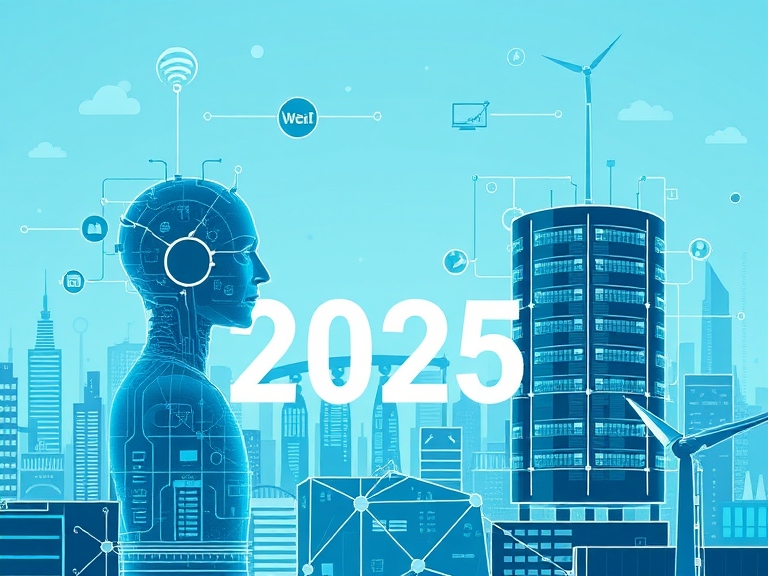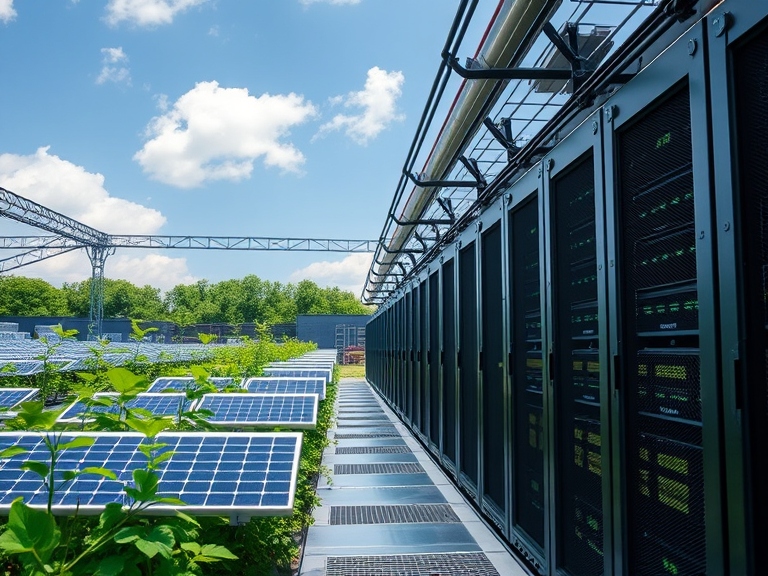
Technology is evolving at a rapid pace, reshaping industries and the way we live. As we approach 2025, new innovations are emerging that promise to revolutionize software development, computing, and business operations. Whether you’re a tech enthusiast, software engineer, or business leader, understanding these technologies can help you stay ahead of the curve. Let’s dive into the top 10 software technologies to watch in 2025.
1. Artificial Intelligence (AI) & Machine Learning (ML)
AI and ML continue to be transformative forces, driving automation, personalization, and optimization across industries.
In-Depth Industry Insights
- Healthcare: Hospitals are increasingly using AI for predictive analytics, allowing early detection of diseases like cancer. For example, AI-based tools like IBM Watson Health analyze patient data to recommend personalized treatment plans.
- Retail: ML algorithms power recommendation systems like those used by Amazon and Netflix, increasing user engagement and sales.
- Finance: AI detects fraudulent transactions in real-time, saving banks millions. Companies like PayPal use AI to spot unusual patterns in account activity.
Emerging Trends
- Explainable AI (XAI): AI models in regulated industries like healthcare or finance will be required to provide transparency into decision-making processes.
- Federated Learning: Companies like Google are experimenting with federated learning, training AI models locally on devices like smartphones to ensure data privacy.
2. Quantum Computing
Quantum computing is still in its early stages but has already demonstrated its potential to solve problems that are unsolvable by classical computers.
In-Depth Industry Insights
- Pharmaceuticals: Quantum computers can model molecular interactions at an atomic level. Companies like Roche and Pfizer are leveraging quantum simulations to speed up drug discovery.
- Logistics: Optimization problems like route planning for delivery services (e.g., FedEx, UPS) can be solved exponentially faster with quantum algorithms.
- Cybersecurity: Governments and enterprises are working on post-quantum cryptography to protect sensitive data from future quantum attacks.
Emerging Trends
- Hybrid systems, where quantum and classical computers work together, are expected to become mainstream by 2025.
3. Low-Code/No-Code Platforms
These platforms are empowering businesses by reducing development time and enabling non-developers to create functional apps.
In-Depth Industry Insights
- Small Businesses: Tools like Microsoft PowerApps enable small businesses to automate workflows without hiring developers. For instance, a local bakery could use low-code platforms to track orders and inventory.
- Education: Schools are using no-code tools to build student tracking systems, helping teachers monitor attendance and performance.
- Startups: Startups with limited budgets are leveraging platforms like OutSystems to prototype apps rapidly.
Emerging Trends
- AI-Driven Development: By 2025, low-code platforms will integrate AI for auto-suggestions, reducing manual effort further.
4. Edge Computing
Edge computing reduces latency by processing data closer to the source, enhancing efficiency and enabling real-time decisions.
In-Depth Industry Insights
- Automotive: Autonomous vehicles rely on edge computing to process sensor data locally. Tesla’s self-driving cars are a prime example, where milliseconds count for safety.
- Healthcare: Wearable devices like Fitbit use edge computing to provide real-time health metrics, alerting users to irregularities instantly.
- Retail: Smart shelves in stores use edge computing to track inventory and alert staff when restocking is needed.
Emerging Trends
- Edge AI: Combining AI with edge devices will enable smarter, more responsive systems.
5. Extended Reality (XR): AR, VR, and MR
XR technologies are redefining user experiences across industries, from immersive gaming to practical applications.
In-Depth Industry Insights
- Healthcare: Surgeons use VR for pre-surgical planning, allowing them to visualize complex procedures. Platforms like Osso VR are revolutionizing medical training.
- Retail: AR apps let customers “try” products before buying. IKEA Place, for example, allows users to visualize furniture in their homes.
- Education: Virtual classrooms powered by VR are providing interactive learning experiences. Students can take virtual field trips or conduct lab experiments remotely.
Emerging Trends
- Remote Work: XR will create virtual office spaces, improving collaboration among geographically dispersed teams.
6. Blockchain Beyond Cryptocurrencies
Blockchain is transforming industries beyond its initial application in cryptocurrencies, providing secure, transparent solutions.
In-Depth Industry Insights
- Supply Chain: Companies like Walmart are using blockchain to trace food products, ensuring quality and safety.
- Voting Systems: Blockchain is being explored to create tamper-proof electronic voting systems, enhancing trust in elections.
- Finance: Decentralized finance (DeFi) platforms are automating financial services, reducing the need for intermediaries.
Emerging Trends
- Interoperability: By 2025, blockchain networks will communicate seamlessly, enabling cross-chain transactions and collaborations.
7. DevSecOps (Security-Focused Development)
DevSecOps integrates security into every stage of the software development lifecycle, making applications more resilient.
In-Depth Industry Insights
- Finance: Banks like JPMorgan are adopting DevSecOps to safeguard sensitive customer data during development.
- E-commerce: Platforms like Shopify use automated security checks to detect vulnerabilities before deploying updates.
- Government: Public sector organizations are embedding security protocols in development pipelines to protect critical infrastructure.
Emerging Trends
- AI-Driven Security: AI tools will automate threat detection, making DevSecOps faster and more efficient.
8. Internet of Behaviors (IoB)
IoB analyzes data from IoT devices to understand and influence user behavior.
In-Depth Industry Insights
- Marketing: Retailers use IoB to track customer behavior and personalize recommendations, increasing sales.
- Healthcare: Wearable devices monitor daily activities, suggesting lifestyle changes based on behavior.
- Insurance: Telematics devices in cars collect driving behavior data, allowing insurers to offer personalized premiums.
Emerging Trends
- IoB will raise ethical questions about data privacy, prompting stricter regulations.
9. Natural Language Processing (NLP) Evolution
NLP is advancing to become emotion-aware, enabling AI systems to understand tone and sentiment.
In-Depth Industry Insights
- Customer Support: AI chatbots like ChatGPT 4 can detect frustration in a customer’s tone and adapt responses accordingly.
- HR: NLP tools are analyzing resumes and conducting initial candidate assessments, saving recruiters time.
- Media: Content creation tools powered by NLP are writing personalized articles and reports.
Emerging Trends
- Emotion-aware AI will revolutionize industries where human interaction is critical, such as healthcare and education.
10. Green Computing
Sustainability will become a core focus, with green computing optimizing energy use and reducing carbon footprints.
In-Depth Industry Insights
- Data Centers: Companies like Google and Amazon are using carbon-aware algorithms to optimize energy consumption in their data centers.
- Software Development: Developers are adopting lightweight code and efficient algorithms to minimize resource use.
- Transportation: Green computing technologies are powering electric vehicles, optimizing routes to conserve energy.
Emerging Trends
- Governments and organizations will enforce stricter regulations to ensure compliance with sustainability goals.

How These Technologies Are Interconnected
The technologies outlined above don’t exist in silos—they work together to create powerful solutions. For example:
- Edge Computing and AI: Together, they enable real-time decision-making in autonomous vehicles.
- Blockchain and IoB: These can create personalized user experiences with secure data sharing.
- Quantum Computing and AI: Quantum advancements will significantly accelerate AI training processes.
Conclusion
The software technology trends of 2025 promise a future of smarter, faster, and more sustainable solutions. From AI-driven healthcare to green data centers, these innovations are shaping a world where technology solves complex challenges efficiently.
By understanding and adopting these technologies early, businesses can remain competitive, while individuals can future-proof their careers. The key to success lies in staying informed, upskilling, and embracing change.